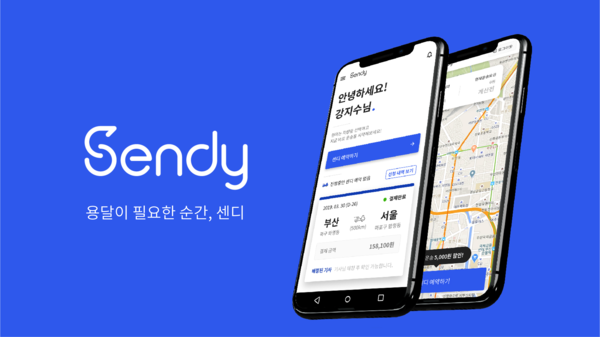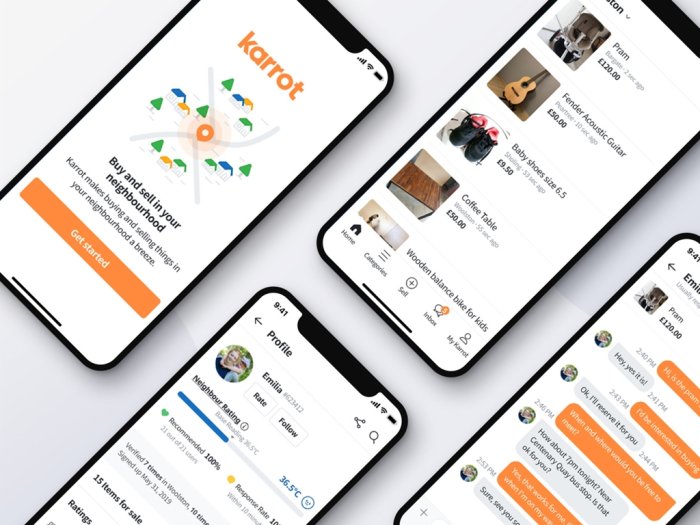AI-driven Freight Logistics Sendy. South Korea
How Sendy is Disrupting Korea’s Freight Market with Smart Technology
Yeom Sang-jun’s (CEO of Sendy) Vision to Streamline Logistics with AI and Human-Centered Innovation
In South Korea, freight logistics have long been a complicated and fragmented industry. Managing diverse cargo, unpredictable costs, and an aging workforce creates persistent inefficiencies. Enter Yeom Sang-jun, the CEO of Sendy, who is determined to change the game. His startup is not only simplifying freight matching but also introducing new levels of transparency and trust to an industry in desperate need of both.
With an ambitious growth trajectory—600% year-over-year revenue growth—Yeom and his team are proving that smart technology, coupled with human-centered business practices, can unlock massive opportunities.
From Crisis to Opportunity: Sendy’s Early Days
Like many startup founders, Yeom didn’t find instant success. He faced a brutal learning curve and even fell into serious debt during his first entrepreneurial ventures. By the time he launched Sendy, he had already been through the grind of the restaurant and real estate industries, failing hard but learning even harder.
Yeom founded Sendy on one simple principle: freight logistics needed transparency. The sector, worth ₩40 trillion ($30 billion) in South Korea, lacked a reliable way to match cargo with the right vehicles at the right price. He saw opportunity in the chaos.
“At the beginning, our platform didn’t work perfectly,” Yeom recalls. “But we knew that if we could survive long enough to gather the right data, we could improve.” And improve they did.
Revolutionizing an Industry Rife with Challenges
Unlike taxis, where drivers and riders are relatively easy to match, freight logistics are far more complex. Factors like cargo size, truck type, and special handling requirements can make matching freight to a driver difficult. In some cases, the appropriate truck might not be available, or pricing becomes unpredictable due to external factors like weather or fuel costs.
Sendy’s innovation lies in its ability to simplify these variables. Through a tech-first approach, the company matches users with drivers via a mobile app, offering predictable pricing and a reliable service. “It’s like a freight version of ride-hailing, but with a lot more moving parts,” says Yeom.
Connecting cargo to drivers became Sendy’s specialty, but it wasn’t easy. “We started by building relationships with truck drivers. We had to earn their trust by guaranteeing fair rates and ensuring timely payments,” Yeom explains.
AI: The Key to Unlocking Freight Matching Efficiency
As Sendy grew, it became clear that data would be the company’s strongest asset. Initially, pricing and matching were inconsistent, causing dissatisfaction among both drivers and customers. But the Sendy team persisted, collecting data from every transaction to improve their algorithms.
Today, the company uses AI to accurately predict prices and match freight with available drivers. “We’ve built a system that not only provides real-time pricing but also learns from every match. That way, each time a truck is assigned, the next one gets even more efficient,” Yeom explains.
This efficiency translates into higher customer satisfaction and more opportunities for drivers. The more data Sendy collects, the smarter its system becomes, reducing mismatches and improving the overall experience.
Tackling an Aging Workforce and Industry Challenges
One of the biggest challenges facing the freight industry in Korea is the aging demographic of truck drivers. The average driver is over 60 years old, and many earn less than ₩2.3 million ($1,725) per month. Despite their importance to the supply chain, these workers face harsh conditions and often struggle with delayed payments.
Sendy has stepped in to provide a solution. The platform guarantees timely payments and offers a transparent, tech-driven way for drivers to manage their jobs. By ensuring fair compensation, Sendy has built a loyal network of drivers, many of whom were previously underserved by traditional freight brokers.
“Transparency is our strongest asset,” Yeom says. “We’ve created a system where both sides know what to expect. Drivers get paid on time, and customers know exactly where their cargo is and when it will arrive.”
Surviving a Pandemic and the Power of Team Loyalty
Like many startups, Sendy faced its biggest challenge during the COVID-19 pandemic. Investors backed out at a critical moment, leaving the company without the funds to pay its employees or the truck drivers who relied on Sendy for their livelihoods. Yeom knew he had to be honest with his team. He sat them down and explained the situation, hoping they would stick with him.
One day, an employee asked to speak privately with Yeom. Expecting a resignation, Yeom braced himself for the worst. Instead, the employee offered a surprising gesture: the employee wanted to lend Yeom ₩50 million ($40,000) saving for the upcoming wedding.
“I couldn’t believe it,” Yeom recalls. “I was speechless. I told them to think it over, because I knew the risks.” But the next day, they returned with the savings and insisted on helping. This act of loyalty sparked a wave of support within the company. Soon, other employees followed suit, lending personal savings to keep the company afloat.
Their collective belief in the company gave Yeom the strength to push forward. “It wasn’t just the money,” he explains. “It was the trust and commitment they showed during the darkest time. That’s what kept me going.”
This intense period tested the company’s resilience. Yet, despite the financial strain, no one left the team. In fact, Sendy emerged stronger, more connected, and more committed to its mission than ever before.
Scaling for the Future: A Focus on Trust and Technology
With the hardest days behind them, Yeom now has his sights set on expanding Sendy’s reach across Korea and beyond. The domestic market for small freight alone is valued at ₩8 trillion ($6 billion), and Yeom believes that as Sendy continues to refine its technology, the company will naturally move into larger markets like international logistics.
For now, the focus remains on perfecting the platform and continuing to build trust with both customers and drivers. “Our dream is simple: we want everyone in Korea to think of Sendy when they need a truck,” Yeom says.
As the company grows, it remains committed to transparency and efficiency—principles that have been central to its success so far.
Conclusion: A New Era for Freight in Korea
Sendy’s rise is a testament to what can happen when technology and human relationships work together. By tackling one of Korea’s most fragmented industries with smart innovation and a relentless focus on building trust, Yeom Sang-jun and his team are setting a new standard for freight logistics.
In a market filled with inefficiencies, Sendy’s streamlined, data-driven approach offers a glimpse into the future of logistics—one that’s more efficient, transparent, and, most importantly, human-centered.




